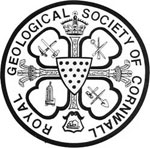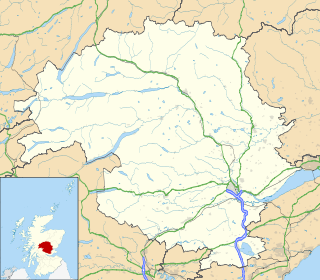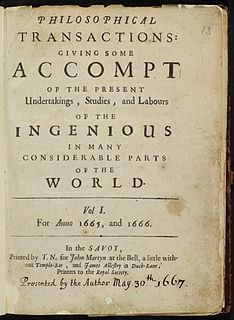
William Forbes Skene WS FRSE FSA(Scot) DCL LLD, was a Scottish lawyer, historian and antiquary.

Walter Bower was a Scottish canon regular and abbot of Inchcolm Abbey in the Firth of Forth, who is noted as a chronicler of his era. He was born about 1385 at Haddington, East Lothian, in the Kingdom of Scotland. In 1991, Donald Watt said of Bower's Scotichronicon that "We are more and more convinced that this book is one of the national treasures of Scotland, which should be studied in depth for many different kinds of enquiry into Scotland’s past."

Joseph Ames was an English bibliographer and antiquary. He purportedly wrote an account of printing in England from 1471 to 1600 entitled Typographical Antiquities (1749). It is uncertain whether he was by occupation a ship's chandler, a pattern-maker, a plane iron maker or an ironmonger. Though never educated beyond grammar school, he prospered in trade and amassed valuable collections of rare books and antiquities.

William Smellie (1740–1795) was a Scottish printer who edited the first edition of the Encyclopædia Britannica. He was also a naturalist and antiquary, who was joint founder of the Royal Society of Edinburgh, co-founder of the Society of Antiquaries of Scotland, and a friend of Robert Burns.

David Steuart Erskine, 11th Earl of Buchan, styled Lord Cardross between 1747 and 1767, was a Scottish antiquarian, founder of the Society of Antiquaries of Scotland in 1780, and patron of the arts and sciences.

Sir James Balfour Paul was the Lord Lyon King of Arms, the officer responsible for heraldry in Scotland, from 1890 until the end of 1926.

The Royal Geological Society of Cornwall is a geological society based in Penzance, Cornwall in the United Kingdom. It was founded in 1814 to promote the study of the geology of Cornwall, and is the second oldest geological society in the world, after the Geological Society of London which was founded in 1807.

Manaw Gododdin was the narrow coastal region on the south side of the Firth of Forth, part of the Brythonic-speaking Kingdom of Gododdin in the post-Roman Era. It is notable as the homeland of Cunedda prior to his conquest of North Wales, and as the homeland of the heroic warriors in the literary epic Y Gododdin. Pressed by the Picts expanding southward and the Northumbrians expanding northward, it was permanently destroyed in the 7th century and its territory absorbed into the then-ascendant Kingdom of Northumbria.

Scone is a village in Perth and Kinross, Scotland. The medieval village of Scone, which grew up around the monastery and royal residence, was abandoned in the early 19th century when the residents were removed and a new palace was built on the site by the Earl of Mansfield. Hence the modern village of Scone, and the medieval village of Old Scone, can often be distinguished.
Alexander Gordon was a Scottish antiquary and singer. His survey of Roman sites, the Itinerarium Septentrionale, was considered an essential reference by all Roman antiquaries of his time.
Sir Henry Mildmay was an English politician who sat in the House of Commons at various times between 1621 and 1659. He supported the Parliamentarian cause in the English Civil War and was one of the Regicides of Charles I of England.

William Cole, was a Cambridgeshire clergyman and antiquary, known for his extensive manuscript collections on the history of Cambridgeshire and of Buckinghamshire.
Owen Salusbury Brereton,, born Owen Brereton, was an English antiquary.
John Caley (1760–1834) was an English archivist and antiquary.
General Thomas William Fermor, 4th Earl of Pomfret FRS, styled The Honourable Thomas Fermor until 1830, was an officer in the British Army who fought in the French Revolutionary and Napoleonic Wars.
Thomas Fisher (1772–1836) was an English antiquary.
Sir Nicholas Carlisle, KH, FRS, MRIA, was an English antiquary and librarian. In 1806, he became a candidate for the office of Secretary to the Society of Antiquaries, which he obtained the following year. In 1812, he became an Assistant Librarian of the Royal Library; he went on to accompany that collection to the British Museum, which he attended two days each week. He wrote several topographical dictionaries of England, Ireland, Wales and Scotland. He also wrote an historical account of Charitable Commissioners, and of Foreign Orders of Knighthood.
John Blair FRS, FSA, was a British clergyman, and chronologist.
John Callander (1722–1789) of Craigforth in Stirlingshire was a Scottish antiquary and plagiarist.
Surgeon-General Cosmo Gordon Logie FRSE (1820–1886) was a military surgeon and medical author of Scots descent in the 19th century.
The public domain consists of all the creative work to which no exclusive intellectual property rights apply. Those rights may have expired, been forfeited, expressly waived, or may be inapplicable.

Sir Leslie Stephen was an English author, critic, historian, biographer, and mountaineer, and father of Virginia Woolf and Vanessa Bell.

The Dictionary of National Biography (DNB) is a standard work of reference on notable figures from British history, published since 1885. The updated Oxford Dictionary of National Biography (ODNB) was published on 23 September 2004 in 60 volumes and online, with 50,113 biographical articles covering 54,922 lives.





















